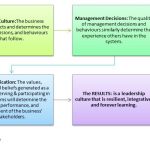Why Companies Need To Make 2017 A Year Of Service
However you feel about the outcome of the election, one result should be pretty easy for most to agree on: the fact that our society is deeply divided. This isn’t new, and it’s been building for years. The election just seems to have brought it out in a big way.
But this shift isn’t strictly political. In 2010, University of Michigan researchers reported that young adults, on average, are around 40% less empathetic than their counterparts two or three decades ago. People as dissimilar as parenting experts, CEOs, and virtual-reality innovators are all thinking afresh about how to deliberately teach empathy.
That’s probably a good sign. The fact is that companies have a real interest in cultivating more empathetic leaders and employees inside their walls and customers outside of them. The more self-interested and fragmented the world becomes, the harder it is for organizations to function or for businesses to appeal to broad markets of consumers.
The other good sign is that companies may not need to wage this fight on their own. In the aftermath of the election, there’s been a sharp uptick in activism, with contributions to mission-based nonprofits hitting record levels. So it’s a good bet that many people are taking a fresh look at their careers and thinking harder about whether their work makes the kind of difference in the world that they’d like it to.
On the brink of 2017, with all of these changes converging, it would be a missed opportunity—for society and the business world alike—if companies don’t step up to support them.
How Service Years Work, And Why They Matter
One of the most powerful ways to heal our country’s divisions and lack of empathy is to put diverse young people—white, Hispanic, black, Asian; urban and rural; straight and LGBT; college-educated and GED-holders—together for an intensive year of full-time service. In exchange for a living allowance and money toward higher education, young Americans are working in communities around the country and world to tackle the most pressing challenges in education, health care, the environment, poverty, and more. Think of it as a gap year, but with a paycheck and purpose. (And by the way, gap years aren’t just for recent grads any longer.)
Yes, this would mean private industry forking over cash to support work that doesn’t contribute to the bottom line—in effect, paying people not to work for them. But some companies are already doing exactly that.
Airbnb is tapping the power of its platform to offer free, short-term housing by matching up service year corps members with local hosts when they move to new communities. Joe Gebbia, cofounder and chief product officer at Airbnb, has called on the tech community to follow suit in putting resources behind service years. The idea, he says, “puts into action what we stand for: empowering people to make transformative changes in their lives and the lives of others.”
Cisco has donated millions of dollars to support ServiceYear.org, our online marketplace that connects young people to over 25,000 service year opportunities. In 2015, Starbucks helped launch the 100,000 Opportunities Initiative, a coalition of employers committed to helping the 5.5 million young Americans who are neither in school nor working enter college and a career—promoting a service year as one of the available pathways. At the company’s annual shareholder meeting, CEO Howard Schultz ended by emphasizing the need for civility in America.
What Companies Gain When More People Do A Service Year
These aren’t outlier efforts by just major corporations, either. More than 400 employers—including Disney, Delta, and the State Department—have stepped up to incentivize service years by joining the Employers of National Service, an initiative launched by President Obama in 2014 to give service year alumni a leg up in the recruitment and hiring process as they enter (or reenter) the workforce.
And it’s no wonder why. For businesses, a service year is an ideal training ground for future recruits in a competitive job market where—increasingly and at employers from small businesses to Google—technical skills alone don’t always cut it. In the 21st century, the dominant job skills for employees are the “softer” ones—like adaptability, problem-solving, teamwork, and the capacity to empathize with customers, clients, and the world around them.
Service year workers get hands-on training in all these areas. And in the process, they change lives, including their own. They become high-stakes problem-solvers by working with some of our most vulnerable citizens; they become adept at working on diverse teams and with limited resources. In short, they become precisely the sorts of leaders companies keep saying they need and have more trouble finding.
America is complex. It’s going through major demographic, social, political, and economic changes—all of which create deep challenges that are felt across our society. That makes it ever more urgent to rethink what experiences we provide for each generation to prepare them for the hard work of confronting those challenges responsibly and together.
It also means we need to rethink what we ask of ourselves, as businesses and organizations: Are we merely selling a product or service, or are we making the world a better, more human place in the process? If the answer is no, customers and top talent will likely notice, and turn away.
However, companies can lean into this—supporting more service years in their own markets, hiring alumni as great new talent within their organizations, and and using their platforms to inspire the young Americans they reach. At this crossroads for our nation, it’s up to businesses to step up in bigger and more creative ways than they ever have. Let’s make 2017 a year of service—it’s good for business as well as our country. America could really use a win-win, and this is one of them.
Zach Maurin is the executive director of Service Year Alliance, an organization working to make a service year a common expectation and opportunity for all young Americans.
Fast Company , Read Full Story
(1)














